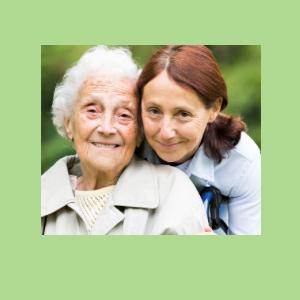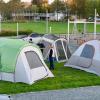Preparation before ER visits can save lives
More than a quarter of Delaware's seniors, including seasonal visitors, will visit a hospital emergency room this year. The good news is that Delaware is ranked in the top 10 nationally for access to Emergency Care, Quality Care and Patient Safety, according to the 2016 American College of Emergency Physicians Report Card.
Susan Towers, coordinator of Media Relations for Beebe Healthcare, said the emergency medicine team reports the top reasons why seniors go to the emergency room: chest pain; shortness of breath/difficulty breathing.; abdominal pain; headache; vomiting; syncope or fainting; complications from blood thinners, anticoagulant and other medications; motor vehicle accidents; and fractures, sprains and other injuries from falls.
One in three seniors will fall this year. Most are related to tripping on curbs, uneven pavement, steps or transferring from sitting to standing both inside and outside of home. Gait and balance issues also cause falls.
Most visits to emergency rooms in Delaware hospitals are not for life threatening symptoms, and fortunately only about 10 percent of people presenting need to be admitted overnight, but knowing how to recognize emergency medical conditions that require immediate attention could save a life.
These include any immediate onset of symptoms, including severe pain; sudden or extreme difficulty breathing; sudden or extended loss of consciousness; bleeding that will not stop; severe burns, deep cuts or broken bones; known or suspected poisoning; seizures; and suspected heart attack or stroke.
Recognizing heart attack and stroke symptoms is key to preventing needless death. Heart attack signs include chest pain that's sudden or discomfort in the middle of the chest that lasts more than a few moments or that returns and repeats, especially when accompanied by cold sweat, nausea or lightheadedness. Women are somewhat more likely than men to experience other common symptoms, particularly shortness of breath, nausea/vomiting and back or jaw pain. If any of these signs are seen, call 911.
If a teen or adult suddenly collapses, call 911 and push hard and fast in the center of the chest to the beat of the classic disco song "Stayin' Alive." CPR can more than double a person's chances of survival, and "Stayin' Alive" has the right beat for hands-only CPR.
Many patients who have a stroke develop droopiness on one side of the face, confusion, and weakness in one or both arms. Other signs include numbness of the face, or in an arm or leg; vision trouble in one or both eyes; trouble speaking or understanding; loss of balance or coordination, dizziness or severe headache. If someone might be having a stroke, ask the person to smile, raise an arm and speak a short sentence. If any of those trouble signs are seen, call 911.
Unless instructed by a doctor, patients should always go to the nearest hospital. Beebe Healthcare is at 424 Savannah Road in Lewes. For more information, call 302-645-3300. Beebe is a level III trauma center, meaning there is 24-hour coverage by emergency medicine physicians and prompt availability of general surgeons and anesthesiologists.
David Forman, president of Visiting Angels, a home care company that helps seniors and disabled adults continue to live safely at home, says, "Knowing where to go and what to expect can help you and accompanying loved ones better assist the triage nurse when you arrive, and get you seen faster. Hopefully somebody else is driving, and they should park and help you in, or drop you off as close to the Emergency Room entrance as possible, but regardless of your situation, never block the ambulance entrance to any emergency room."
People are seen in the order of necessity, so if an injury or symptoms are not immediately life threatening, be prepared to wait. The triage nurse is the only person who determines the order of patients seen, and she is normally extremely competent and experienced and shouldn't be second-guessed by you or a loved one unless your condition while waiting changes dramatically.
If patients are not brought through the emergency doors immediately, they or a loved one will be expected to sign in. This is where personal and health information should be available. Chances are if someone is in an emergency room, he or she won't feel like answering a long list of questions.
Hospitals across the nation recommend always carrying basic personal health and identification information that can easily be prepared ahead of time: a list of present medications and dose; any known allergies to medicines, foods or latex (which may be used in a hospital setting); a list of any present medical conditions or diagnosis; blood type if known (when unknown, O negative is used, which is compatible with all blood types); name and phone number of primary physician and any relevant specialists; driver's license or other photo identification; health insurance or Medicare card; and an emergency contact, preferably somebody authorized to make medical decisions on a patient's behalf.
Preparation and knowledge can substantially lower the risk that an accident or illness becomes anything worse.
Forman says, "Seniors living alone or with other seniors or disabled adults who may not be able to drive or provide immediate assistance are most at risk for an accident, illness or symptoms to turn into a fatality." A home care company like Visiting Angels can often help prevent falls and accidents, or report symptoms and illnesses to loved ones and help get medical assistance quickly. From a couple of hours to 24/7 care, experienced aides help with personal care, light housework, preparing meals, medication reminders, errands, appointments, shopping and companionship. For more information, call Visiting Angels at 302-329-9475 or go to www.visitingangels.com/sussexde.

























































